Friday, September 08, 2006
Gathering for Sept. 10
Monday, August 21, 2006
Gathering for August 27th
 Coach Mike Krzyzewski... Yes, I realize that by opening with a reference to Coach K I just caused most of you to cruise to other blogs. Hear me out! Part of the Duke mentality that Coach K instills in his players is that they are part of something greater than themselves. I wonder if the same mentality rests in the heart of our faith. James Howell points out that in all the gospels' accounts of the resurrection it is never about us, but about something greater than us. In other words, the sentimental beliefs that the resurrection is just about you and I living forever or us being reunited with some lost loved ones both focuses too much on the self...it makes the resurrection about you and I...and not God. Howell asks us to consider what Coach K asks his players to consider, what if this thing, for our purposes the resurrection, is bigger than me? Seriously, what if the resurrection is God's way of saying, "I am God," "Jesus really is my son," or "in the end...I always win." This week, we'll talk begin to talk about the wonderful mystery that is the resurrection and what this event means.
Coach Mike Krzyzewski... Yes, I realize that by opening with a reference to Coach K I just caused most of you to cruise to other blogs. Hear me out! Part of the Duke mentality that Coach K instills in his players is that they are part of something greater than themselves. I wonder if the same mentality rests in the heart of our faith. James Howell points out that in all the gospels' accounts of the resurrection it is never about us, but about something greater than us. In other words, the sentimental beliefs that the resurrection is just about you and I living forever or us being reunited with some lost loved ones both focuses too much on the self...it makes the resurrection about you and I...and not God. Howell asks us to consider what Coach K asks his players to consider, what if this thing, for our purposes the resurrection, is bigger than me? Seriously, what if the resurrection is God's way of saying, "I am God," "Jesus really is my son," or "in the end...I always win." This week, we'll talk begin to talk about the wonderful mystery that is the resurrection and what this event means.Thursday, August 17, 2006
He Descended into Hell
Monday, July 31, 2006
Gathering for August 13
Friday, July 28, 2006
Gathering for July 30
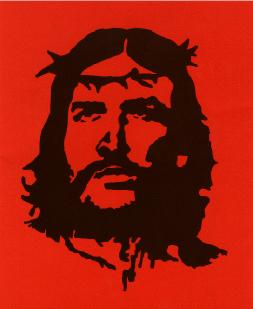 "Greetings True Believers," to quote Stan Lee, I'm back from a blogging hiatus (read: a combination of business and much needed laziness). This Sunday's lesson presents two areas for conversation: faith's relationship to politics & the necessity of suffering. Here is this week's reading.
"Greetings True Believers," to quote Stan Lee, I'm back from a blogging hiatus (read: a combination of business and much needed laziness). This Sunday's lesson presents two areas for conversation: faith's relationship to politics & the necessity of suffering. Here is this week's reading.Wednesday, May 24, 2006
Gathering for May 28
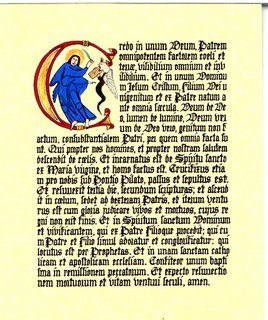
Saturday, May 13, 2006
Gathering on May 21
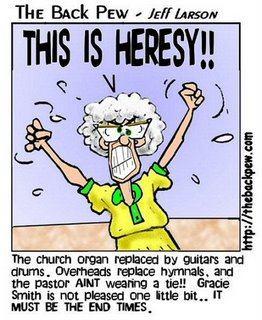
Tuesday, May 09, 2006
Thoughts for Sunday May 14
 Shame on you if you're reading this and thinking, "oh man, thats this Sunday!" Well...it is...this Sunday is Mother's day. It is Tuesday...you've got four shopping days left! Get to it or otherwise you'll hear, "and to think I was in labor with you for [insert ridiculous number of hours here]!" OK with reminders given it is time to turn our attention to Sunday's Gathering and Discussion. Last Sunday we got wonderfully off-topic. (It is amazing how, to loosely quote Robert Burns, "the best laid plans of mice and men often [get scuttled by the Holy Spirit].) We discussed in detail debunking the Da Vinci Code. (You'll see a blog entry with a few links you can hit and draw your own conclusions.) This week, start by looking at the entry for May 7. We are discussing "...and in Jesus Christ." For this week's reading, click HERE.
Shame on you if you're reading this and thinking, "oh man, thats this Sunday!" Well...it is...this Sunday is Mother's day. It is Tuesday...you've got four shopping days left! Get to it or otherwise you'll hear, "and to think I was in labor with you for [insert ridiculous number of hours here]!" OK with reminders given it is time to turn our attention to Sunday's Gathering and Discussion. Last Sunday we got wonderfully off-topic. (It is amazing how, to loosely quote Robert Burns, "the best laid plans of mice and men often [get scuttled by the Holy Spirit].) We discussed in detail debunking the Da Vinci Code. (You'll see a blog entry with a few links you can hit and draw your own conclusions.) This week, start by looking at the entry for May 7. We are discussing "...and in Jesus Christ." For this week's reading, click HERE.- Though Jesus never wrote a word (that we are aware of) you could fill a library with books about him. Why is he so controversial? Why is he one of the most discussed and debated figures in human history?
- Why could it be said that Jesus is the "scandal of scripture?" Well, it is because we say that we believe that he was both completely "human" and "divine." Why can't Jesus just be one or the other? Why can't he be half and half? By the way, most all heresies are over this issue of Jesus being both man and God. (Here is a hint for approaching this question.)
- OK, if you looked at last week's blog entry, why didn't God just send "Super Jesus?"
Thursday, May 04, 2006
Da Vinci Debunked!
- This link is to a review and some thoughts by Dr. James Howell, he authored the book we are using in our Sunday gatherings.
- This link is to a debate between Dr. Bart Ehrman (of recent Gospel of Judas fame) and Dr. Richard Hays held at Duke University.
Thoughts for Sunday May 7
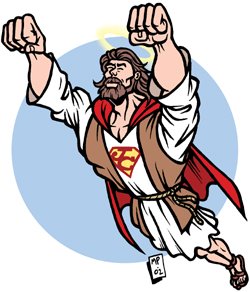 The most profound theological questions always seem to come from children. I suspect it is because they, unlike most adults, search for answers without ever thinking "is it O.K. for me to even ask this?" For example, a child in one of my former churches asked me, "why didn't Jesus just come down here...and be all like, 'you all best believe in my Dad, or I'll break out some karate moves...'" The kid then proceded to go all "Chuck Norris" around me before adding, "Jesus could have been like all big and bad (at this point I am thinking that this kid must have seen the same 900 Foot Jesus that Oral Roberts claimed to see), he could have shot laser beams out of his eyes..." The kid went on for sometime, all the while making Jesus sound more like something out of a Wachowski Brothers film than the Messiah of Scripture.
The most profound theological questions always seem to come from children. I suspect it is because they, unlike most adults, search for answers without ever thinking "is it O.K. for me to even ask this?" For example, a child in one of my former churches asked me, "why didn't Jesus just come down here...and be all like, 'you all best believe in my Dad, or I'll break out some karate moves...'" The kid then proceded to go all "Chuck Norris" around me before adding, "Jesus could have been like all big and bad (at this point I am thinking that this kid must have seen the same 900 Foot Jesus that Oral Roberts claimed to see), he could have shot laser beams out of his eyes..." The kid went on for sometime, all the while making Jesus sound more like something out of a Wachowski Brothers film than the Messiah of Scripture. Wednesday, April 26, 2006
Thoughts for Sunday April 30

1.) What are some moments or experiences where you found yourself to be in "slack-jawed" awe of God?
2.) Theology must find expression in our actions, so what would our lives (i.e., our actions, priorities, thinking, etc.) look like if we took seriously that all we have is a gift from God?
3.) What is heaven? Is it just a reward for a life well lived? Is it a destination or a journey? If heaven is the Kingdom of God then are we it's subjects, and if so how should a proper subject behave?
Wednesday, April 19, 2006
Thoughts for Sunday April 23

James Weldon Johnson) Art offers us the best language with which to depict God. Maybe, art is the language of God the Creator. Johnson's poem happens to be one of my favorite narrations of the Creation story and offers an image of God that is the perfect marriage of God's parental nature, almighty attributes, and position as creator in one vivid poem. (Before I forget, here is a link to this week's reading.)
- I believe that asking better questions leads to gaining a more faithful understanding of any subject, God included. So, what question is Genesis 1 (and following) seeking to answer (Who, what, when, where, why, and/or how)?
- Thomas Aquinas stated that theology was the Queen of the Sciences. What is and what should be the relationship between science and faith? How does "science" impact "faith?"
- Why did God create us? What is our role in creation? What makes us special (or are we)?
Wednesday, April 12, 2006
Thoughts for Sunday April 16
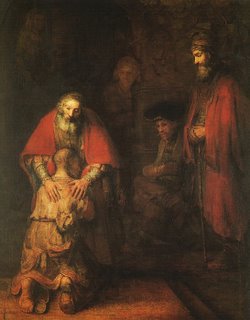
Wednesday, April 05, 2006
Thoughts for Sunday April 9

Questions/Thoughts for this Sunday's Reading:
Monday, March 27, 2006
Links on the Left
Thoughts for Sunday April 2nd
 Kelly, Ruben, Fantasia...the American Idols. I can't say that I am a huge "idol" fan, though I do like watching the early rounds where every other "hopeful" resembles a "patient on a day pass" more than a "pop star!" American Idols? Who or what are America's greatest idols? (As Americans, what is your greatest idol?) This week we are discussing the first line of the Creed, "I believe in God." The first question I think of when I say that line is who is God? Don't overlook this question. It is important! Martin Luther once said that what our heart most wants to cling to is our god. John Calvin went one step further saying that the human heart is a factory for idols...a factory for gods. Click here for this week's reading.Thoughts & Questions for this week's gathering/online discussion: (Comment or add further questions to those I posted below)
Kelly, Ruben, Fantasia...the American Idols. I can't say that I am a huge "idol" fan, though I do like watching the early rounds where every other "hopeful" resembles a "patient on a day pass" more than a "pop star!" American Idols? Who or what are America's greatest idols? (As Americans, what is your greatest idol?) This week we are discussing the first line of the Creed, "I believe in God." The first question I think of when I say that line is who is God? Don't overlook this question. It is important! Martin Luther once said that what our heart most wants to cling to is our god. John Calvin went one step further saying that the human heart is a factory for idols...a factory for gods. Click here for this week's reading.Thoughts & Questions for this week's gathering/online discussion: (Comment or add further questions to those I posted below)- God is a "We." In other words, we will start to talk about the Trinity (God the Father, God the Son, God the Holy Spirit).
- Who/what are our gods, our idols?
- When you say the word "God," what do you think about? What images come to mind?
- How do we know about God?
- What are some ways we can convince others of the presence of God?
Thursday, March 23, 2006
Thoughts for Sunday March 26th

A Thought Exercise: Imagine you're docking a boat. You cast a rope to tie your boat to the dock. Success, you now begin to pull the boat to the shore. Now, ask yourself, are you pulling the boat closer to the shore (i.e., the dock) or are you moving the entire shore closer to the boat? Obviously, the boat is the one moving, not the shore. Faith works the same way! As we pray we find ourselves moving closer to God, God stays God. In other words, God does not become the sum total of all our opinions. God remains God and we draw ourselves closer to God and God's will. C.S. Lewis, when praying for his wife who was dying of cancer, discovered that when he first started to pray for his wife he was praying as if to change God's will. Later, he discovered that in prayer it was not God's will that was being changed so much as his. This exercise brings us into Howell's Lesson for this week, how faith is both personal and communal.
- In what ways can the Creed be (or become) impersonal and in what ways is it deeply personal (i.e., it expresses my beliefs, it expresses my relationship with God)?
- Is there a danger in making faith (what we say we believe when reciting the Creed) too personal? In other words, can you have too personal a relationship with Jesus?
- Howell argues that we live in a culture that is suspicious of truth, I would add especially absolute truths, is this a fair assessment? If it is, then how might the Creed be received by our current culture, how might faith be received? Does our believing in absolute truths make us somewhat counter-culture as Christians? If it does, what are some examples?
- What is the role of the Church (the community of believers) in helping us to believe?
Closing Thought: Remember the Creeds came to be through debate, discussion, prayer and thought. Remember that the Creeds were first recited and professed under penalty of death. Though we may be tempted to think of them as just something we say each Sunday, the first people who said them would have said them with greater passion and conviction. Just think if in this class we can rediscover something of the passion and conviction of our spiritual-forebearers.
Thursday, March 16, 2006
Thoughts for Sunday March 19th
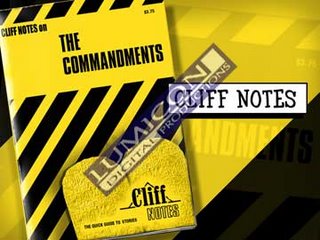
Monday, March 06, 2006
What is Theology?

Sunday School for March 12, 2006
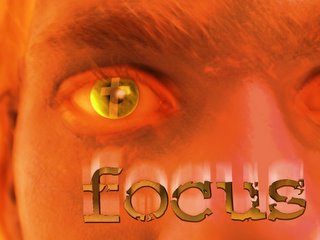
“But what if we have doubts and hard questions? Does the Apostles’ Creed alienate thinkers? The Creed in a surprising way, invites doubt…. Isn’t there a faithfulness in our doubting? Haven’t all great discoveries in history happened because somebody doubted?”
· Consider the questions Howell poses in the above excerpt.
· What is the relationship between faith and doubt? (For those of you who were in our first class back in February you may remember me mentioning something about the theologian Paul Tillich. I’ll share some more on him this week, specifically his book Dynamics of Faith.)
· Where does one draw the line between “healthy skepticism or doubts” and “unbelieving?” Can such a line even be drawn?
· What are your greatest sources of doubt?
· “I believe, Lord help my unbelief.” This line makes for an awesome prayer. Theologians have talked for ages about a “faith that we believe” and the “faith that it takes to believe it.” What are your thoughts on making a distinction between a belief and the strength it takes to believe it?
When I read Howell’s second paragraph, I came up with the following questions/comments:
· How does the Creed function as a frame through which we can then ask questions about God? More importantly, how does it help our forming answers?
· God is mystery. Think about it, God is greater than our minds can conceive. Our knowing God, the infinite and almighty, is like our trying to carry the oceans of the world in a shot glass…you’ll get something in there, but never all of it. Yet, God invites us to embrace this mystery and we are embraced by the mystery…by God. Should this fact cause us not to want to study God? If God is a subject we cannot master (say like carpentry) then is our studying God something like a doctor or lawyer “practicing” medicine or law? (They practice to know the subject better, but they never master it.) Is theology then more like a marriage (us to God, appreciating that God knows us far more than we know God) in that the longer we stay in the relationship the more we come to know the object of our love?
· One of the footnotes (for those of you with the book) for this section offers this quote, “those who believe they believe in God, but without passion in the heart, without anguish of mind, without uncertainty, without doubt, and even without despair believe only in the idea of God, not in God himself.” Wow! What are your thoughts on this quote, how is studying theology, studying God, a discipline (I chose this word intentionally) unlike anything else one could study (again, I prefer the word “seek” or “seeking”) because it demands so much of us?
“Can anyone prove there is a God? What about science and the Bible? How can God be good if there is evil? Why call God “Father?” Does it matter if Mary was a virgin?”
· What are the questions that cause you the most doubt about your faith?
· What questions do you want considered during our time together each Sunday?
“We may all know fervent Christians bristling with faith who say, ‘Just give me Jesus.’ But the Creed not only gives us Jesus. In Rowan Williams’ lovely words, it is ‘the job of doctrine…to hold us still before the name of Jesus. When that slips out of view, we begin instead to use this language to defend ourselves, to denigrate others, to control and correct—and then it becomes a problem.’”
· When I say the word “fundamentalism” or “fundamentalist” what do you think it means? What thoughts or images spring to mind? Now, what if I argued that fundamentalism is faith without doubt what would you say in response? (I admit that this question reveals that I think faith is never an absence of doubt.)
· What problems result from fundamentalism? (Note: I am not talking about the on-going debate between liberalism and conservatism; you can be either and still be fundamentalist!)
Howell quotes Dorothy Sayers who said “It is worse than useless for Christians to talk about the importance of Christian morality, unless they are prepared to take their stand upon the fundamentals of Christian theology. It is fatal to let people suppose that Christianity is only a mode of feeling…And it is fatal to imagine that everybody knows quite well what Christianity is and needs only a little encouragement to practice it. The brutal fact is that in this Christian country not one person in a hundred has the faintest notion what the Church teaches about God or man or society or the person of Jesus Christ.”
· Is it the case that increasingly people know less and less about what it means to be a Christian? (I ask this wanting us to consider ourselves, those who are a part of the church.) A great many things have and are being done in the name of Christ…I wonder if Christ would want his name attached to all those things?
· How are our beliefs and our actions connected?
· How is theology more than a matter of the head?To stir the proverbial pot, is being a faithful Christian always going to give others the perception that you’re a loyal citizen?
Again, feel free to post your own questions and comments on this week's reading or any of the previous weeks' readings. Cheers, Pastor Chris
Monday, February 27, 2006
Meet a Theologian
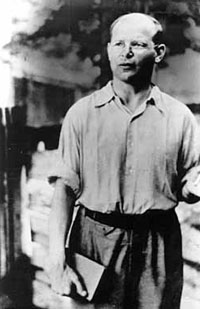
Hey Gang,
As we talk about theology, our thoughts on God. I want to throughout our journey introduce you to various theologians (those people, like you and me) who have spoken about and acted for God. The men and women I hope to introduce you to are our forebearers in the faith. For the month of March, I am starting with the theologian that I read the most back in my Duke days and am influenced by the most...Dietrich Bonhoeffer. The link on the left is to a webpage that offers articles, photos, and even a sound-byte on his life and thought. Bonhoeffer was a pastor, theologian, pacifist, and activist in Nazi Germany. He had an amazing, though tragically short, life and offered some of the most profound thoughts about God! Consider the link an introduction. Read as much of as little as you like.
Cheers,
Pastor Chris
Sunday School for March 5, 2006
 "Growing into our Convictions"
"Growing into our Convictions"Over the last two weeks, we talked about the connection between faith and doubt. I suggested that the greater a person’s faith is, the greater his/her doubt will be. Think about it, only Christians stay up at night worrying about whether or not God exists. Atheists, on the other-hand, don’t lose much sleep considering the matter. We also discussed that what we say we believe, our faith, takes faith, effort or strength, to believe it. Finally, we discussed that our theology (thoughts about God) must be more than something in our heads, it must be something that we can be seen in our lives or actions.
On to this week: When I first shared the vision of my teaching a Young Adults' Sunday school class, people asked what I would teach. At first, I thought, "well...I might adapt some of my youth Bible studies.” Thankfully, I kept thinking. After all, its not like you're not youth anymore! Next, I thought about teaching a book in the Bible. Later, I considered talking about current events. I even considered simply fielding you're questions each week. Finally, it hit me or rather God hit me (not literally, God had a thing for smiting people back in the Old Testament, but I am talking here about revelation) that I didn't need to teach anyone about a book or a topic. What I needed to do was to give others the tools to study for themselves...to think theologically. Therein lays the philosophy for this class or at least my approach. That being said, the question remained how one teaches people to think theologically. Well, you're adults...so there is no need to feed you baby food...you're more than ready for something more solid. So...I decided that at the start of this class I would teach you to think theologically the same way I was taught…back when I was at Duke...using the creeds of the church.
This week's lesson; from The Life We Claim: The Apostles' Creed for Preaching, Teaching, and Worship by Dr. James C. Howell. To purchase the book, click here.
Questions for Discussion:
Why study this Creed, why not another one?
Creeds are those things we say each Sunday. We print them in the bulletin. They are even in our hymnals. Yet, do we ever stop to consider that those words represent and remind us of who we are as Christians and what it is that we say we believe? Do we ever stop and think, "Hey, what do all these words mean?" What is so important about us knowing the meaning of these words? Share an experience of when you might have had one of these thoughts. (Note: You can share these questions with our group by email or on our blog site. I want your questions so I can respond to them as we go.)
Why was the Apostles Creed even written? For that matter, why was any creed written?
Is our faith (our beliefs) an inheritance (something we receive from others) or a treasure (something we ourselves discovered) or both?
Some would argue that increasingly people are interested in traditions or our connection to the past. Still, others would have you believe that you shouldn't trust traditions. So, who is right? Where do you stand on the issue of tradition?
What are some benefits of tradition? What are some drawbacks?
By even saying the creed how are we becoming part of something greater than us?
L. Gregory Jones (Dean of Duke Divinity School) once said in a lecture, "Tradition is the living faith of the dead, traditionalism is the dead faith of the living." What are your thoughts on this quote?
Howell talks in this week's lesson about how the Apostles' Creed was used as a sort of Q&A for those coming into the faith. A creed (from the Latin word credo, meaning “I believe") is a statement of what a person or group believes. So, is a creed, such as the Apostles' Creed, providing a boundary for beliefs (i.e., that which can be said and you still be considered a Christian) or is it a barrier (i.e., if you don't say this you're not a Christian)?
"'I believe' is not the same as saying 'I feel' or 'I want' or 'I think,'" how is this true?
Nicholas Lash wrote that "I believe" is the same as saying "I promise." When we say "I believe" we are not saying "It is my opinion." No, we are saying that this is true; I promise that I believe this. Share your thoughts on this statement?
There have been Pagan cults and religions throughout history, not one has a creed! Why is this? Why was it then so important for the Church to have their act together, in other words, to state what they believed?
What does it say about the Church's care for the truth? What is gained by having a core set of beliefs or a standard? What is the danger in not having a core set of beliefs or a standard?
You will find in studying the Apostles’ Creed, or any creed, that words are very important. Nowadays, we seldom consider the power of words, and about how they form and shape our thinking. (Philosophers have put forward that words are the handles we use to grab hold of ideas.) Let me offer a thought-exercise on how words shape our understanding. To be less controversial, I will use pandas instead of God. Lynne Truss, writer of the British runaway best-seller Eats, Shoots & Leaves: The Zero Tolerance Approach to Punctuation, offers this reflection on our understanding of pandas. “A panda eats shoots and leaves.” This sentence causes us to think of the adorable panda eating his daily diet of bamboo shoots and leaves. Now, if we change our wording to, “a panda eats, shoots, and leaves,” we get a very different image of pandas. Now, the lovable giant is the rudest of dinner guests, he shows up to eat, then shoots and then flees the scene of the crime. Words are important because they shape our perception. I am not so much asking a question here, as making a point for us to remember as we go forward.
People were killed for saying they believed the claims of the Apostles' Creed. Are there things in your life that you believe so strongly in that you are willing to die for it? We are not likely to die literally for our beliefs. However, do we in some sense die (i.e., metaphorically) or suffer for what we believe? Having asked this, do we actually suffer or die for what we believe? Would we?
I also want to encourage you to post your own questions from this week's reading. The earlier in the week you do this the better chance I have to consider it and respond to it. For that matter, the earlier you post the better chance all of us have to consider and respond. Oh yeah, if you have questions about this week’s questions post those too?
Friday, February 24, 2006

- Why is it that a Rock Star and not a Reverend is having to speak the truth about God? Why is the Church not challenging the nation with this message? How is this a reflection of a theology of the mind, but not one of action? How has the Church got itself into the situation where Rock Stars instead of Reverends are the ones preaching such messages? How do we get ourselves out of this situation? (HINT: Again, I want us to see that a proper theology is a mindset that moves us to action)
Bono: "Yes, it's odd, having a rock star here—but maybe it's odder for me than for you. You see, I avoided religious people most of my life. Maybe it had something to do with having a father who was Protestant and a mother who was Catholic in a country where the line between the two was, quite literally, a battle line. Where the line between church and state was… well, a little blurry, and hard to see. I remember how my mother would bring us to chapel on Sundays… and my father used to wait outside. One of the things that I picked up from my father and my mother was the sense that religion often gets in the way of God. For me, at least, it got in the way. Seeing what religious people, in the name of God, did to my native land… and in this country, seeing God's second-hand car salesmen on the cable TV channels, offering indulgences for cash… in fact, all over the world, seeing the self-righteousness roll down like a mighty stream from certain corners of the religious establishment… I must confess, I changed the channel. I wanted my MTV."
- Is it true that more people would love Christ if it were not for the Christians? Share some examples of how this is true (Bono hints at some in these lines). Again, how is theology part of the problem (HINT: confessing one thing with our lips, and acting contrary to it)? What is gained when theology matches practice?
- Extra credit: what line in the above is borrowing from Martin Luther King (another example of theology that matched action).
Bono: "Then, in 1997, a couple of eccentric, septuagenarian British Christians went and ruined my shtick—my reproachfulness. They did it by describing the Millennium, the year 2000, as a Jubilee year, as an opportunity to cancel the chronic debts of the world's poorest people. They had the audacity to renew the Lord's call—and were joined by Pope John Paul II, who, from an Irish half-Catholic's point of view, may have had a more direct line to the Almighty. 'Jubilee'—why 'Jubilee'? What was this year of Jubilee, this year of our Lords favor? I'd always read the Scriptures, even the obscure stuff. There it was in Leviticus (25:35)… 'If your brother becomes poor,' the Scriptures say, 'and cannot maintain himself… you shall maintain him… You shall not lend him your money at interest, not give him your food for profit.' It is such an important idea, Jubilee, that Jesus begins his ministry with this. Jesus is a young man, he's met with the rabbis, impressed everyone, people are talking. The elders say, he's a clever guy, this Jesus, but he hasn't done much… yet. He hasn't spoken in public before… When he does, is first words are from Isaiah: 'The Spirit of the Lord is upon me,' he says, 'because He has anointed me to preach good news to the poor.' And Jesus proclaims the year of the Lord's favour, the year of Jubilee. (Luke 4:18) What he was really talking about was an era of grace—and we're still in it. So fast-forward 2,000 years. That same thought, grace, was made incarnate—in a movement of all kinds of people. It wasn't a bless-me club… it wasn't a holy huddle. These religious guys were willing to get out in the streets, get their boots dirty, wave the placards, follow their convictions with actions… making it really hard for people like me to keep their distance. It was amazing. I almost started to like these church people. "
- The Church originally was a group of people that acted on their beliefs drawing those beliefs from the example and guidance of Scripture. (Early on, theology was expressed in deeds and only later words.) So, if we are taking God seriously, and God's word seriously, how would life and the world be different? How would the church be different?
- The idea of Jubilee, that Bono expands upon in this message, is just one example of the Church making a "difference" in the world, of the Church turning the world on its ear by taking theology seriously. What are some other instances of the Church, both locally and globally, taking theology seriously? (HINTS: Civil Rights Movement, Katrina Aid, etc. Of course, you can site the other examples Bono offers.)
Bono: "Preventing the poorest of the poor from selling their products while we sing the virtues of the free market… that's a justice issue. Holding children to ransom for the debts of their grandparents… That's a justice issue. Withholding life-saving medicines out of deference to the Office of Patents… that's a justice issue. And while the law is what we say it is, God is not silent on the subject. That's why I say there's the law of the land… and then there is a higher standard. There's the law of the land, and we can hire experts to write them so they benefit us, so the laws say it's OK to protect our agriculture but it's not OK for African farmers to do the same, to earn a living? As the laws of man are written, that's what they say. God will not accept that. Preventing the poorest of the poor from selling their products while we sing the virtues of the free market… that's a justice issue. Holding children to ransom for the debts of their grandparents… That's a justice issue. Withholding life-saving medicines out of deference to the Office of Patents… that's a justice issue. And while the law is what we say it is, God is not silent on the subject. That's why I say there's the law of the land… and then there is a higher standard. There's the law of the land, and we can hire experts to write them so they benefit us, so the laws say it's OK to protect our agriculture but it's not OK for African farmers to do the same, to earn a living? As the laws of man are written, that's what they say. God will not accept that. Mine won't, at least. Will yours?"
- Who is God? Seems like a simple question, but who you think God is may not be who you follow? Maybe the question should be posed, "who is God, or Lord, of you?"
- Do you ever think that some people (including us at times) make God sound a lot like their own biases, prejudices and ideas? God is no longer a voice speaking to and with us, but an echo of us. How has the Church, the government, institutions in general distorted God to fit their own agendas? How have we done the same? As an aside, notice how theology (what we believe) and ethics (how we apply those beliefs) are linked.
Bono: "Thus sayeth the Lord: 'Bring the homeless poor into the house, when you see the naked, cover him, then your light will break out like the dawn and your recovery will speedily spring fourth, then your Lord will be your rear guard.' The Jewish scripture says that. Isaiah 58 again. That is a powerful incentive: 'The Lord will watch your back.' Sounds like a good deal to me, right now. A number of years ago, I met a wise man who changed my life. In countless ways, large and small, I was always seeking the Lord's blessing. I was saying, you know, I have a new song, look after it… I have a family, please look after them… I have this crazy idea… And this wise man said: stop. He said, stop asking God to bless what you're doing. Get involved in what God is doing—because it's already blessed. Well, God, as I said, is with the poor. That, I believe, is what God is doing. And that is what He's calling us to do.
- Christ said that the greatest commandment was to love God and to love others...theology in a nutshell! How are these two connected? Who are these others? How are our thoughts about God (our theology) also thoughts about others? Theology is not about us (in a self-centered sense), it is about us properly understanding how to be involved with others.
Bono: "History, like God, is watching what we do. "
Obviously, this passage raises other questions, thoughts, and comments. This is why this is a place to communicate. Please feel free to share your thoughts both before class (so we can discuss them Sunday, afterall this is a class by you all, not just me) and throughout the coming week. Remember, this is a site for Koinonia (pronounced: coin-no-knee-uh), a site for commuity and communication with each other and, ultimately, with God.
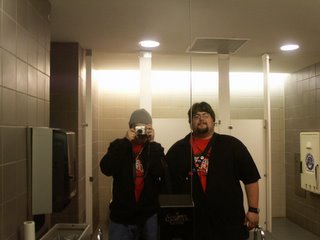 Greetings and Salutations! Ok...enough formality. The picture is from the National Youth Workers Convention in Charlotte several years ago...I am the one on the left. This blog is a space for us to be engage in Koinonia...to be a community and to communicate. It is a space for us to share our wonderings about God and our wanderings with God. Check back for links and discussion questions for our upcoming Sunday School gathering. Cheers, Chris
Greetings and Salutations! Ok...enough formality. The picture is from the National Youth Workers Convention in Charlotte several years ago...I am the one on the left. This blog is a space for us to be engage in Koinonia...to be a community and to communicate. It is a space for us to share our wonderings about God and our wanderings with God. Check back for links and discussion questions for our upcoming Sunday School gathering. Cheers, Chris

